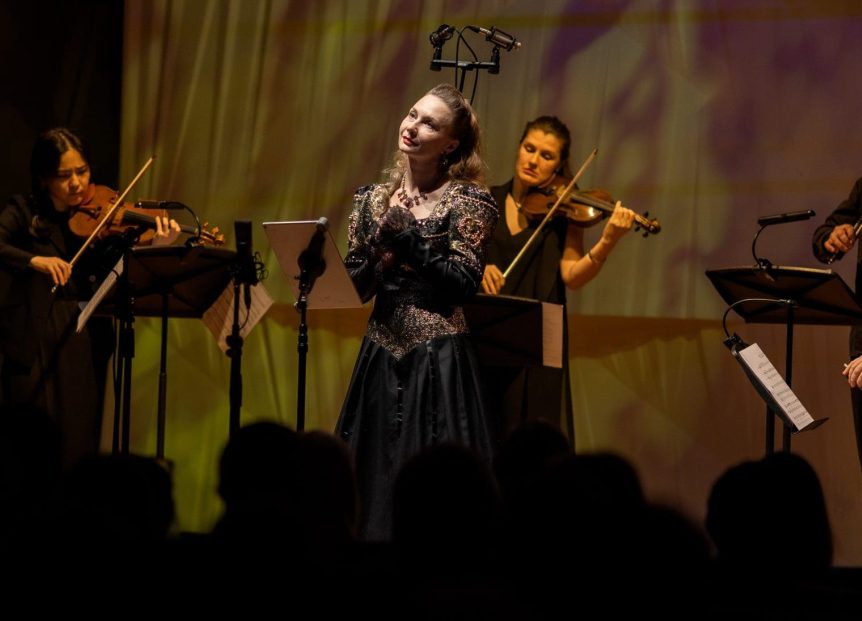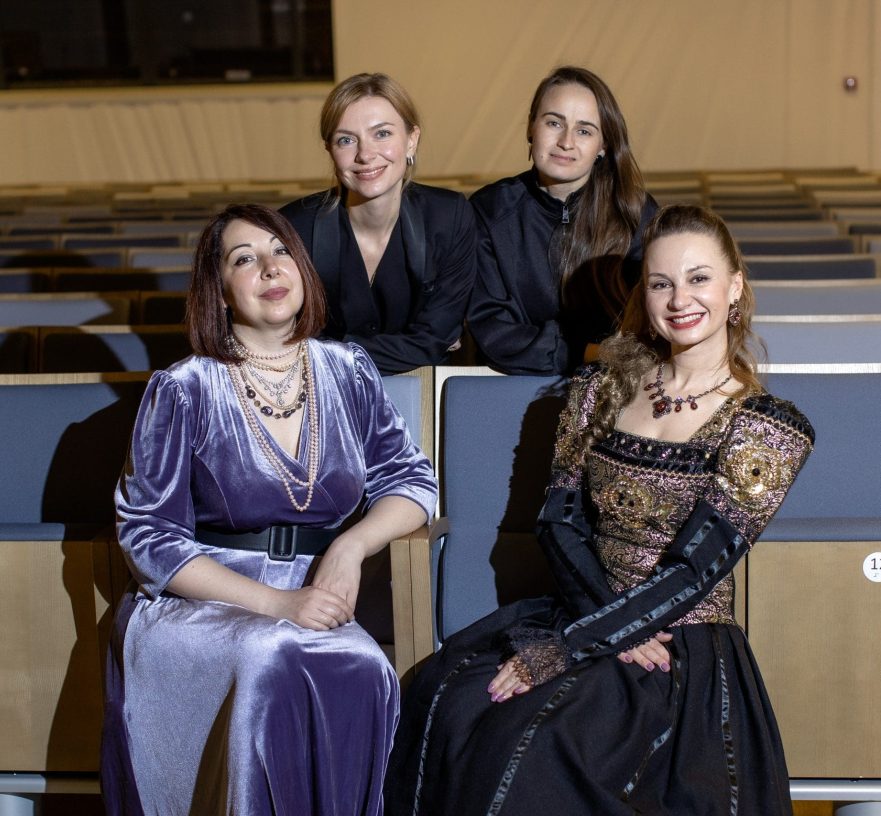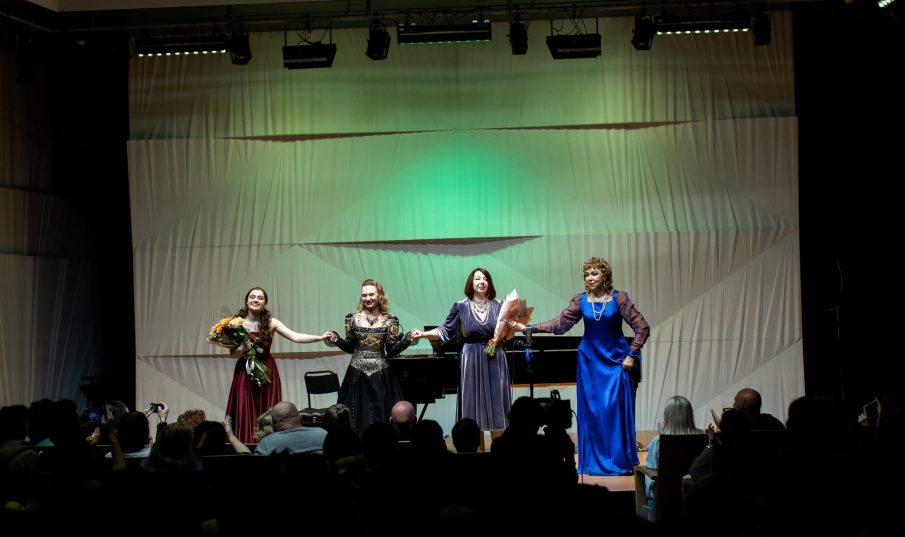Two Festivals Met in "Zaryadye"
In the Chamber Hall of "Zaryadye," another concert of the "Music of Our Time" festival took place. This successful, long-running chamber project has now collaborated with a new project – the International Festival of Contemporary Opera by Women Composers "Muffled Voices," which started in February this year.
There is no contradiction here – the "Muffled Voices" festival also focuses on chamber formats: its performances feature operas written for a small number of vocalists (often even for just one), accompanied either by piano or a small instrumental ensemble. This is not a forced measure – it was initially intended by the composers who reimagined the opera genre, shifting it from grandiosity towards intimacy.
Therefore, the invitation for one festival to collaborate with another seems quite logical, especially since the founder and artistic director of "Music of Our Time," pianist Karina Pogosbekova, is also a co-founder of "Muffled Voices," and many vocalists participating in her chamber project also perform in the festival's operatic productions.
At the concert in the Small Hall of "Zaryadye," there was an equal balance of operatic and chamber music. The first part featured mini-mono-operas by Tatiana Chudova (to whom the "Muffled Voices" festival is dedicated), while the second part showcased chamber vocal lyrics by other contemporary authors. This combination revealed different facets and the immense potential of chamber music, which can be very diverse, with rich expressive means, and the boundaries of chamber music being quite flexible and relative.
Among all opera festivals, "Muffled Voices" stands out as a unique forum: it focuses not only on chamber compositions but also on works by women composers whose voices, due to socio-cultural reasons, were not as prominent as they deserved to be in the past. At the joint concert with "Music of Our Time," the festival presented two works by Chudova, the only female composer at the Moscow Conservatory, a student of Tikhon Khrennikov, and an heir to the traditions of Vissarion Shebalin, Nikolai Myaskovsky, and the great Rimsky-Korsakov. While "Tatiana's Dream" had already been performed in February this year at the Theater Hall of the House of Music, the performance of "Professor Dowell's Head" marked the world theatrical premiere of this chamber opera by the Russian master.
Tatiana Chudova's musical language combines the breadth and depth of the Russian national melos, the traditions of flexible and expressive melodized recitative from Dargomyzhsky and the Mighty Handful, with the latest achievements in musical thought and technique of the 20th century. There is noticeable influence from Shostakovich and his circle, as well as avant-garde music trends. However, masterfully using various sound effects, Chudova does not sacrifice the voice – her operas are still for singing, where the pain and turmoil of the human soul are expressed in a quite plastic cantilena, albeit sometimes monotonous. The monologic presentation of the vocal part is largely dedicated to an expressive style of emotional expression.
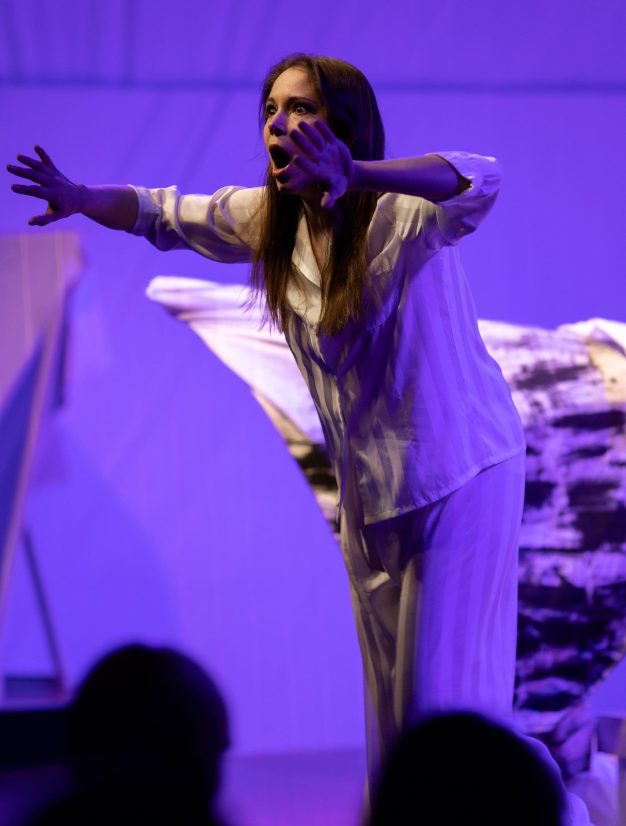
The mini-mono opera "Tatiana's Dream" is a fragment from Pushkin's timeless novel in verse "Eugene Onegin," focusing on the dream of the familiar character, Tatiana Larina. This enigmatic Freudian piece is omitted from Tchaikovsky's opera. Tatiana Chudova fills this gap, complementing the well-known letter scene with Tatiana's dream, revealing her subconscious fears and desires. Chudova's vocal part, filled with wide interval leaps and extreme tessitura, creates a tension reflecting Tatiana's restless state.
Performed masterfully by Helikon-Opera's mezzo-soprano Alexandra Kovalevich at the festival, the mono-opera is accompanied by a chamber ensemble consisting of piano, violin, harp, and clarinet (an intentional choice by the composer). The vocal line is challenging, with a vast range, and the instrumental accompaniment, despite its chamber nature, often makes the singer's voice less clear, losing the meaning of the words but conveying their emotional essence. In Elizaveta Korneeva's production, dancer Viktoria Mikhaylets acts as the physical double of the singing heroine, visualizing much of what Tatiana-Kovalevich sings. Both actresses are dressed in white pajamas, and their "habitat" is naturally a snowy white bed. During Tatiana's heightened fears, the director shows us the underside of the mattress, with black stains mimicking a bear's skin, visualizing the formidable master of the Russian forests that Tatiana envisions in her prophetic dream.
"Professor Dowell's Head" is a mini-mono opera for bass based on the famous sci-fi novel by Alexander Belyaev. The sole performer, internationally renowned singer Denis Sedov, portrays the head of a great scientist subjected to a cruel experiment by his unscrupulous and ambitious student, Kern. Sedov's resonant bass skillfully handles the challenging vocal part, combining drawn-out monody with expressive bursts of energy at the top of the range.
In Elizaveta Korneeva's production, large inflatable gray balloons metaphorically represent the heads manipulated by the treacherous student Kern. There are also two mime characters, scientists Kern (Ivan Markov) and Marie (Yulia Petrachuk), dressed in white lab coats, who assist the main performer, adding dynamism and variety to the action.
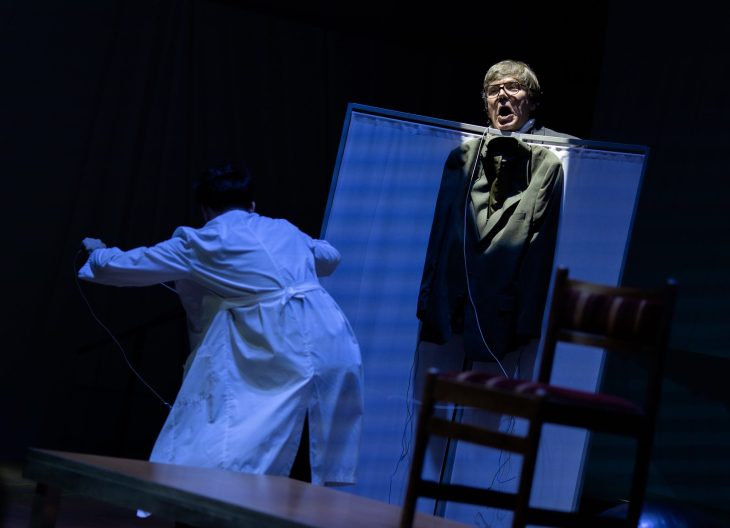
The performance unfolds on stage in front of and behind a large white screen, on which Professor Dowell's gray suit hangs on a hanger. When Sedov-Dowell hides behind it, the audience continues to see his character's torments in close-up thanks to live video streaming. These torments are not only due to his desperate situation but also his hopeless love— even in his condemned state, Dowell continues to love his assistant, Marie. Unlike "Tatiana's Dream," "Professor Dowell's Head" is written for singing accompanied only by piano. Karina Pogosbekova's masterful accompaniment and Sedov's expressive singing make every word clear, making it easier for the audience to follow the plot and understand the verbal meanings embedded in the vocal part.
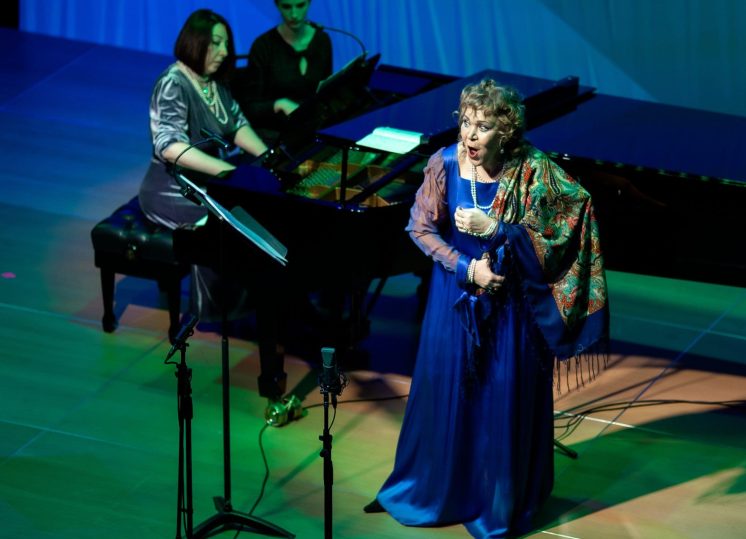
The theatrical expression did not fade in the second, purely chamber part of the concert. It was most evident in the performance of Bolshoi Theatre soloist Alexandra Durseneva, who theatrically performed Yuri Butsko's vocal cycle "Two Tales" set to Bunin's poems. In the first miniature, she visualized ship-beads using long strings of colored beads. In the second, donning a colorful scarf and holding a real axe, she transformed into a daring Alyonushka, a brave inhabitant of the dense Russian forests. Durseneva's enchanting contralto, full of soft, seductive hues and rich, chocolate-like thickness, created a true pagan myth on stage, and her vibrant acting charisma lent a lively playfulness to the performance. The richly textured and nuanced piano part of the cycle was virtuously and musically sensitively executed by Pogosbekova, resulting in a remarkably harmonious and attentive ensemble between the pianist and the soloist.
